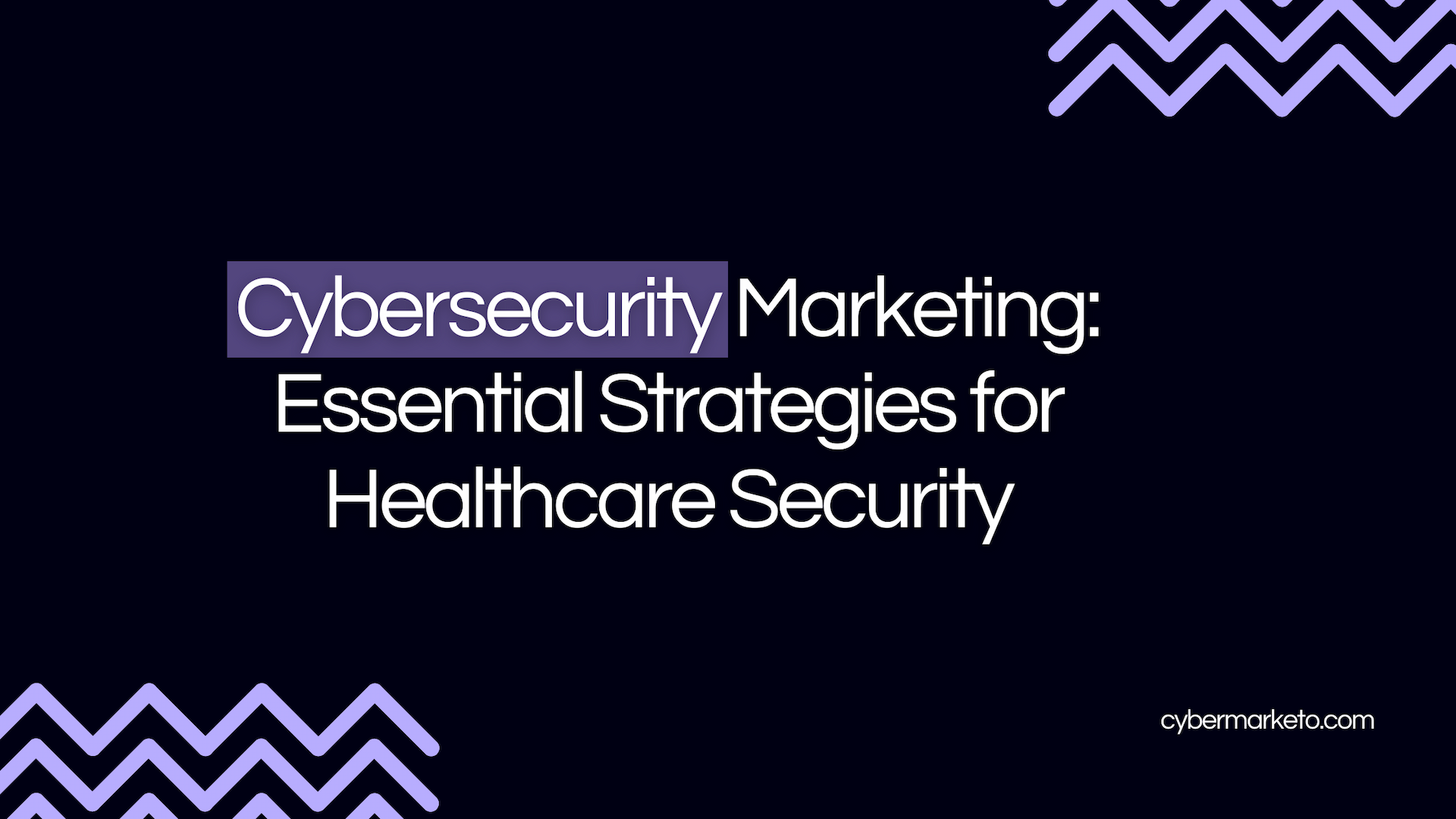
10 Essential Cybersecurity Marketing Strategies for Healthcare Sector Security
Have you considered how vulnerable your healthcare data is to cyber threats? The security of medical records, patient data, and hospital systems is paramount, yet it remains under constant attack from cybercriminals. This topic holds significant importance for cybersecurity founders looking to make a real impact in today’s digital health landscape. This blog will guide you through ten innovative strategies to effectively communicate the importance of robust cybersecurity measures in healthcare, ensuring your message resonates clearly with healthcare providers and patients alike.
1. Tailoring Your Message for Healthcare Professionals

Key Idea: Directly link cybersecurity to patient safety and operational efficiency.
Impact: By making cybersecurity relevant to healthcare professionals’ primary concern—patient care—your message becomes more persuasive, increasing the likelihood of healthcare providers investing in cybersecurity solutions.
2. Utilizing Patient Testimonials
Key Idea: Leverage the powerful narratives of patients who have suffered from data breaches.
Impact: Patient stories humanize the data breach abstracts; they create emotional engagement, compelling healthcare providers to act to protect their patients, thus driving demand for robust cybersecurity measures.
3. Highlighting Compliance and Regulatory Requirements
Key Idea: Focus on the legal and financial risks associated with non-compliance.
Impact: Highlighting the consequences of non-compliance not only creates a sense of urgency but also positions your cybersecurity solutions as necessary tools for legal and financial safeguarding, potentially increasing market penetration.
4. Conducting a Thorough Risk Assessment
Key Idea: The initial step for any healthcare organization seeking to bolster its cybersecurity defenses should begin with a comprehensive risk assessment.
Impact: This helps identify the most pressing vulnerabilities and enables targeted remediation strategies. For cybersecurity entrepreneurs, this approach not only showcases their expertise in identifying risks but also positions their solutions as essential, tailored responses that can lead to long-term engagements and trust with healthcare clients.
5. Ensuring HIPAA Compliance through Cybersecurity Measures

Key Idea: Implementing stringent cybersecurity measures to ensure compliance with health data protection regulations like HIPAA.
Impact: For businesses, emphasizing compliance not only highlights their commitment to legal standards but also mitigates the risk of costly penalties for their clients. This adherence to compliance standards serves as a significant market differentiator in the competitive cybersecurity landscape.
6. Implementing Effective Cybersecurity Technologies
Key Idea: Adoption of advanced cybersecurity technologies such as multi-factor authentication and end-to-end encryption to safeguard patient data.
Impact: By promoting cutting-edge technologies, cybersecurity firms can demonstrate their role in advancing healthcare security, potentially leading to increased adoption rates and perceived value among healthcare providers. This strengthens their market position as leaders in innovation.
7. Training Healthcare Staff on Cybersecurity Threats
Key Idea: Regular and comprehensive training for healthcare staff on identifying and responding to cybersecurity threats.
Impact: This approach not only helps prevent potential breaches but also cultivates a culture of security within healthcare organizations. For cybersecurity firms, providing training services can open additional revenue streams and deepen client relationships, enhancing customer retention.
8. Immediate Response to Data Breaches
Key Idea: Having an actionable incident response plan that can be swiftly executed following a data breach.
Impact: Quick and effective management of data breaches reduces potential damage and restores client trust. For cybersecurity companies, offering robust incident response services ensures that they are viewed not just as service providers but as essential partners in crisis management, further solidifying their value to healthcare clients.
9. Fostering Partnerships with Healthcare Associations
Key Idea: Use partnerships to extend reach and enhance credibility.
Impact: Collaborating with established healthcare associations amplifies your marketing message across a wider audience and enhances the perceived reliability and credibility of your cybersecurity solutions.
10. Emphasizing the Role of Every Employee in Cybersecurity

Key Idea: Promote cybersecurity as a shared responsibility.
Impact: Campaigns that involve every hospital staff member in cybersecurity efforts help to create a culture of security. This holistic approach not only reduces risks but also boosts the internal buy-in necessary for adopting comprehensive cybersecurity measures.
Conclusion
By implementing these ten strategies, cybersecurity founders can effectively communicate the critical importance of cybersecurity in healthcare. As we’ve explored, the integration of real-life examples, regulatory insights, and technological solutions not only educates but also empowers healthcare providers to invest in their cybersecurity infrastructure.
RECENT POSTS
Strategies to Use Customer Testimonials in Cybersecurity Marketing
Advanced Personalization Tips for Cybersecurity Email Campaigns
Strategic Upselling & Cross-Selling Techniques to Boost Cybersecurity Services Revenue
Want to scale your cybersecurity business?
Book a free consultation with me now.
